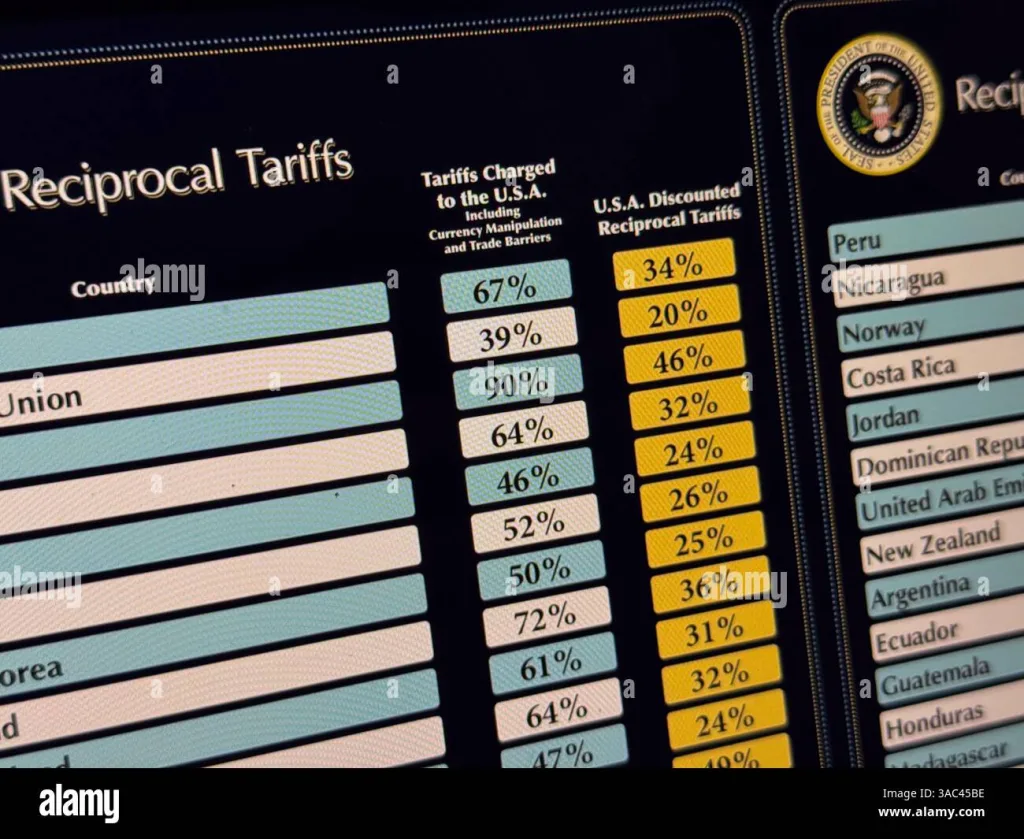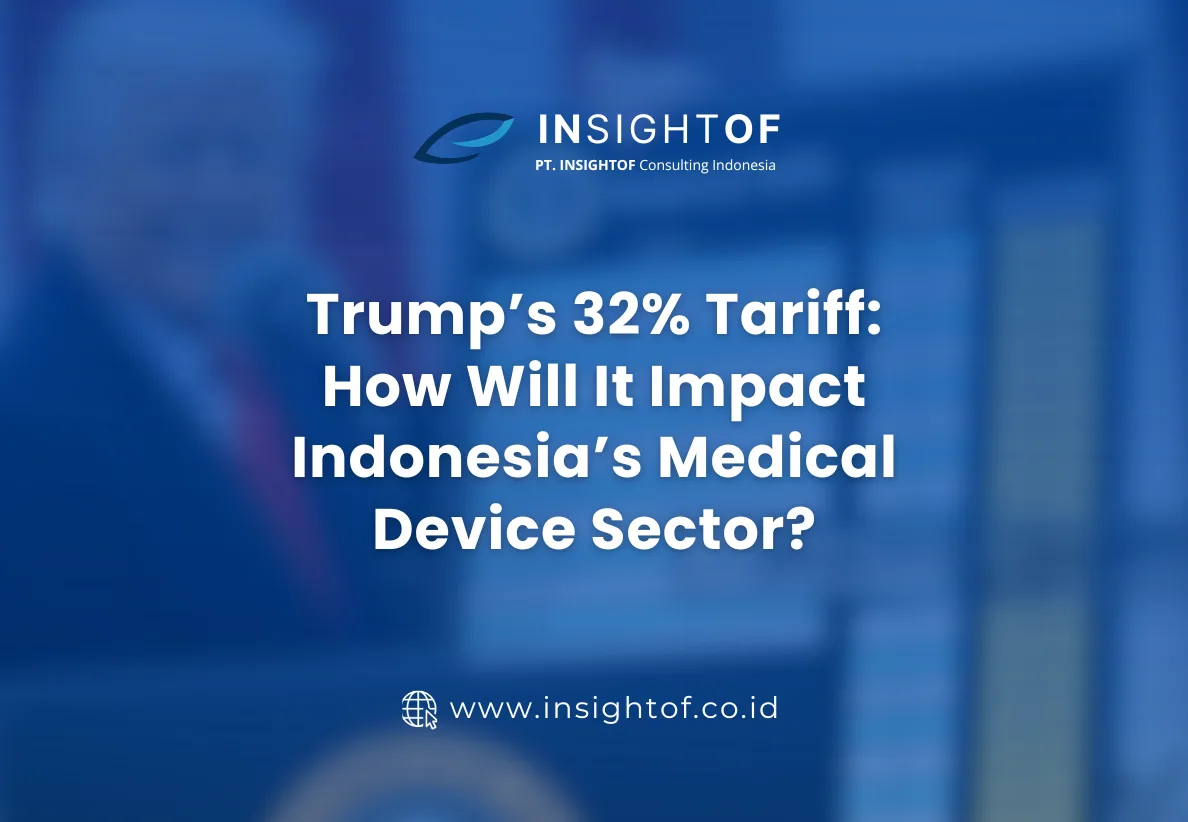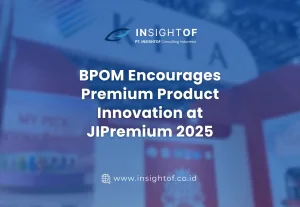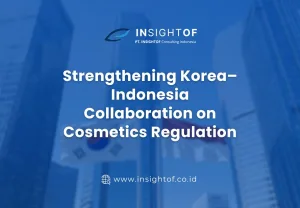Protectionism has returned to the center of global trade discussions. U.S. President Donald Trump has officially imposed a baseline import tariff of 10% on all countries, with additional retaliatory tariffs targeting specific trading partners. Indonesia is one of the affected nations, facing a 32% retaliatory tariff—a rate still lower than that imposed on its regional competitors like Vietnam (46%) and China (54%), which includes both new and previous duties.

Despite the controversy, the Indonesian Medical Device Producers Association (ASPAKI) sees this as a strategic opening. In an official statement, ASPAKI Secretary General Erwin Hermanto said the new tariff structure could actually make Indonesia more attractive to foreign investors, especially those seeking to relocate production to countries with lower export duties to the U.S.
“Indonesia has long lost out to Vietnam when it comes to foreign direct investment. But with these new tariffs, we now present a strategic alternative for manufacturers aiming to avoid steep U.S. duties,” said Erwin on Sunday (April 6, 2025).

A Window for Production Relocation and Domestic Industry Growth
For Indonesia’s medical device sector, this policy shift could be transformational. Since the COVID-19 pandemic, Indonesia has recognized the urgent need to build self-sufficiency in healthcare manufacturing. Presidential Instruction No. 2 of 2022 marked a major turning point, spurring a fourfold expansion in the domestic medical device industry and slashing import dependency in the national e-catalog from 92% to 52%.
ASPAKI believes this momentum must now be accelerated. The U.S. tariff policy should serve as a catalyst to strengthen upstream medical device industries, enhance worker efficiency, and create a more business-friendly environment so Indonesia can emerge as a leading regional, or even global, supplier.
“We can’t just be reactive. We need to proactively build competitive domestic industries that are not overly dependent on either imports or exports,” Erwin added.

Ripple Effects on Global Trade and New Alliances
Beyond direct trade impacts, ASPAKI also points out the potential knock-on effects of high tariffs on the U.S. economy itself. Steeper import duties could drive inflation, slow domestic growth, and trigger volatility in the U.S. dollar exchange rate. This may reduce the U.S.’s appeal as an investment destination and open the door to new economic alliances and trade agreements where Indonesia can play a more central role.
“Indonesia must seize this opportunity to expand non-traditional trade partnerships and increase its leverage in bilateral and regional trade deals,” said Erwin.
Retain TKDN and P3DN as Pillars of Industrial Sovereignty
ASPAKI also warns the government against diluting non-tariff measures (NTMs) like local content requirements (TKDN), Indonesian National Standards (SNI), and halal certification merely to facilitate trade liberalization. Policies such as P3DN (Domestic Product Prioritization) and TKDN have proven highly effective in fostering domestic industry and creating a real economic multiplier effect.
“We already have clear evidence that TKDN helps reduce import dependency. Now is the time to strengthen it, not weaken it,” Erwin emphasized.
Indonesia’s commitment to TKDN is not just about protectionism—it’s a path toward industrial independence and long-term national resilience. With a domestic market of 280 million people, the country holds vast economic potential to both serve its own needs and compete internationally.
Strategic Policy, Not Emotional Retaliation
Instead of responding emotionally or with rushed retaliatory tariffs, ASPAKI urges the government to approach U.S. import duties objectively and strategically. That includes engaging in constructive trade dialogue with the U.S. while firmly upholding domestic industrial interests, particularly strategic policies such as TKDN.
“The government must side with local industry. Trade policies should aim to balance our trade deficit, but never at the cost of essential frameworks like TKDN or SNI,” Erwin concluded.
With clear policy direction, strong leadership, and loyalty to its industrial development agenda, Indonesia has the potential not just to weather global trade tensions—but to rise as a key regional production hub.
Source:
This article is based on reporting by Retno Ayuningrum – detikFinance.
Read the original article on detikFinance:
“Pengusaha Alat Kesehatan Lihat Peluang dari Kebijakan Tarif Trump”








